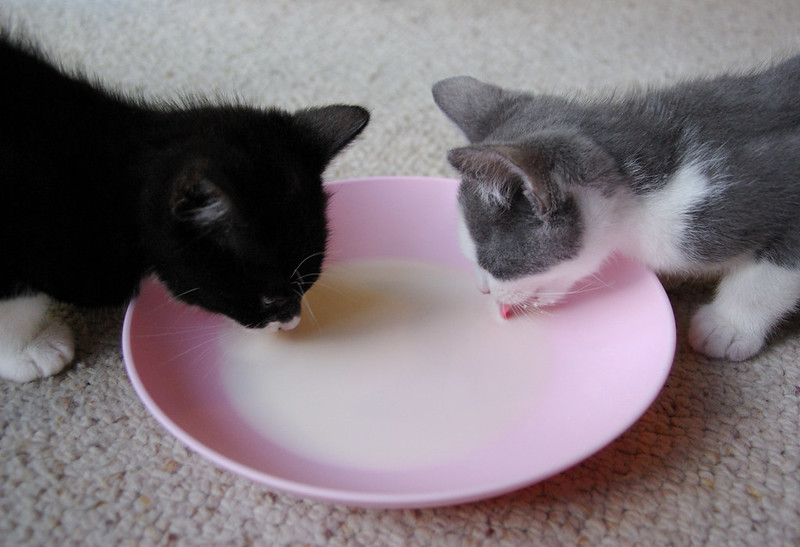Cat Tales - Care and Feeding
Tips for diet and weight management for your feline friends.
Like anyone, kitties love a good treat. But what should they actually eat? We’re all familiar with the iconic imagery of a cat lapping at a bowl of cream or milk, or with a freshly caught rodent or bird gripped in its jaws. But what foods are forbidden, versus acceptable? How do we keep our kitties healthy and happy from a dietary perspective?

You can find a lot of information online on this very topic, some of it well researched and validated, much of it not. You can also find numerous lists of common foods toxic to cats, which we will avoid repeating. So…what are the facts?
Let’s start with the truth that felines are strict carnivores: their digestive systems are adapted to a diet of meat, and as such they lack the ability to process some precursors into critically needed vitamins, as they typically would get those nutrients from the flesh of their prey. While this is absolutely true, it is sometimes taken to an extreme, where cat lovers believe the best diet for their cat is one of raw meat.
This is not the case. First, it is unwise to feed a cat any meat that you yourself would hesitate to eat, since bacterial contamination can be just as deadly to a cat as it can to a human. The red meat or fish from the local grocery may be fine once cooked, but it is rarely fresh to the degree that is could be safely served as steak tartar or sushi.
Secondarily, just because cats are carnivores does not mean that they cannot digest any plant based carbohydrates or proteins: they absolutely need meat as the primary component in their diet, but the presence of other grains or proteins does not disqualify a food for your consideration.
This then brings us to the debate over what types of cat food are good versus bad for your cat. We…are not going to address that. The marketplace for cat food is so large and varied that a book could be written on the topic, and in the end most of it would come down to anecdote and hearsay. The simple truth is that there are countless cats who have lived their entire lives eating one food brand of food or another and have been completely fine.
When it comes down to wet food versus dry food, low-grain or grain-free versus foods made with pea proteins (as most low-grain/grain-free dried foods are) the main question is: will your cat eat it? And if they do, do they tolerate it? Cats can develop allergies to ingredients in food just as humans can. Bloody stool, diarrhea, sudden weight loss and sudden changes in behavior (such as pooping outside of the litter box) can be symptoms of gastrointestinal discomfort related to diet.
But, if your cat is happily chowing down at mealtime, and there is no evidence of their diet causing distress, then what works, works!
So what is the best advice we can give? Simple: use name brand foods designed to provide the full range of required nutrition, and…don’t let your cat snack. It is true for us, and it is true for them. This should be applied to occasional treats that shouldn’t form part of a cat’s regular diet, like a saucer of milk, a cheerio stolen from the breakfast table, or some chicken off your plate: an occasional indulgence probably won’t do much harm, (but better safe than sorry.) When stolen snacks or small treats are a daily occurrence, then it can contribute to obesity and other related illnesses, as well as general intestinal upset.
Similarly, cats do best when they are fed at set times. There is frequently a temptation to simply top off their food bowl, especially with dried foods that last won’t spoil and remain palatable. This allows your kitty to snack throughout the day, and can be a major contributor to weight gain and its attendant diseases. Additionally, this habit can make it difficult to track food intake, which in turn makes it harder to note behavioral changes like a loss of appetite.
To sum up: whatever brand of food that works for your kitty should be fine, but keep an eye peeled for changes that could indicate an emerging dietary intolerance. Very occasional small snacks can also be fine, but food intake should be generally limited to foods you know are safe, and monitored for changes in appetite. Cats really do require meat as they are carnivores, but any store bought (or vet-prescribed) brand will do the trick.
As always, talk to your vet if you have any questions or concerns. We at Abbeywood are here to help!
Photo Attribution: https://www.flickr.com/photos/ryanwick/2283058460